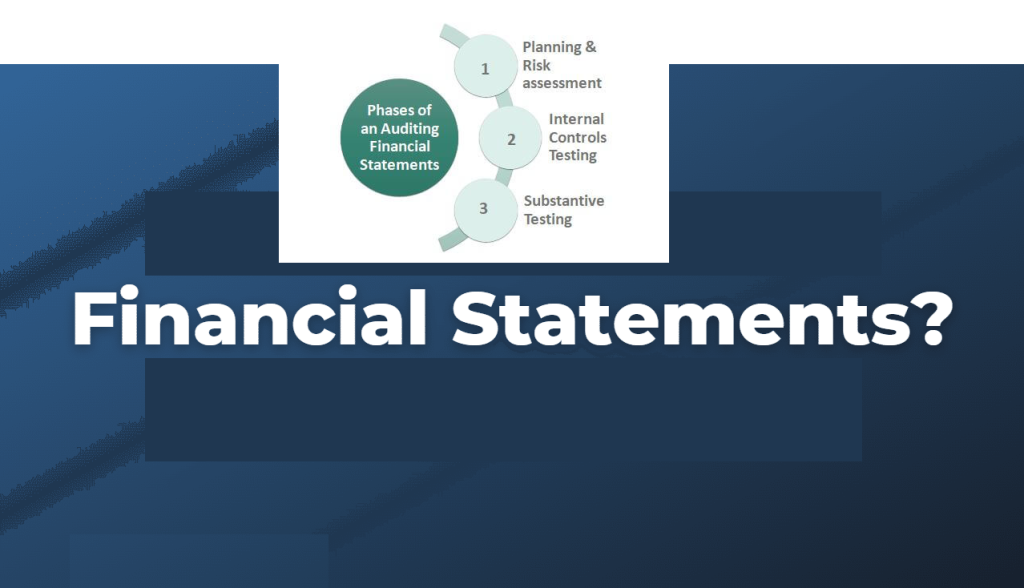Unlocking Transparency and Trust: Exploring the Significance of Audited Financial Statements
Table of Contents
Introduction
Audited financial statements play a pivotal role in the world of finance, providing stakeholders with reliable and trustworthy information about a company’s financial performance. This article delves into the concept of audited financial statements, their objectives, importance, target audience, usage, applicability, benefits, limitations, and concludes with their profound impact on promoting transparency and building trust in financial reporting.
What are Audited Financial Statements?
Audited financial statements refer to the comprehensive and verified financial reports of an organization, prepared in accordance with accounting principles and subjected to independent examination by a certified public accountant (CPA) or an auditing firm. The audit process ensures the accuracy, fairness, and reliability of the financial information presented.
Objectives of Audited Financial Statements
The main objectives of audited statements are as follows:
- Provide Assurance: Audits aim to provide an independent and unbiased assessment of a company’s financial position, performance, and cash flows.
- Enhance Credibility: Audits instill confidence among stakeholders, including investors, lenders, and regulatory bodies, by validating the accuracy and reliability of financial information.
- Detect Fraud and Errors: Audits help identify any potential irregularities, errors, or fraudulent activities, promoting transparency and deterring fraudulent practices.

Importance of Audited Financial Statements
Audited statements hold immense importance for various stakeholders:
- Investors: They rely on audited statements to assess the financial health and viability of a company before making investment decisions.
- Lenders and Creditors: Financial institutions use audited statements to evaluate a company’s creditworthiness and determine loan terms.
- Regulators: Audited statements provide regulators with accurate financial data, facilitating compliance monitoring and ensuring fair business practices.
Who Needs Audited Statements?
Companies of all sizes, including publicly traded corporations, privately held businesses, nonprofit organizations, and government entities, may require audited statements. Additionally, investors, lenders, shareholders, and regulatory bodies often demand audited statements for reliable financial information.
How to Use Audited Statements
Audited statements are utilized for various purposes:
- Decision-Making: Stakeholders use audited statements to make informed decisions regarding investments, lending, partnerships, acquisitions, and other financial matters.
- Compliance: Organizations may use audited statements to comply with legal and regulatory requirements, such as filing tax returns or meeting reporting obligations.
- Stakeholder Communication: Audited statements are a crucial means of communicating a company’s financial performance to shareholders, investors, and other interested parties.
Where to Use Audited Statements
Audited financial statements are utilized in numerous contexts, including:
- Annual Reports: Companies include audited statements in their annual reports to provide a comprehensive overview of their financial performance.
- Investor Presentations: Audited statements are presented to investors during meetings, presentations, or shareholder gatherings to convey the company’s financial standing and prospects.
- Loan Applications: Lenders require audited statements as part of the due diligence process when evaluating loan applications.
Benefits of Audited Financial Statements
- Enhanced Credibility: Audits provide an independent assessment that instills trust and confidence among stakeholders.
- Improved Decision-Making: Accurate and reliable financial information helps stakeholders make informed decisions and mitigate risks.
- Investor Protection: Audited statements protect the interests of shareholders and investors by ensuring the accuracy and transparency of financial data.
Limitations of Audited Financial Statements
- Inherent Limitations: Audits have limitations in detecting all forms of fraud or errors, especially those that involve collusion or sophisticated techniques.
- Time Lag: Audited statements are prepared retrospectively, which means they may not reflect the most current financial position of a company.
- Cost: The process of auditing financial statements can be time-consuming and expensive, particularly for complex organizations.
Conclusion
Audited financial statements serve as a cornerstone of financial transparency and credibility. They provide stakeholders with reliable information, facilitate informed decision-making, and protect the interests of investors and lenders. While audited statements have limitations, they play a pivotal role in promoting transparency, building trust, and upholding integrity in financial reporting, contributing to the stability and growth of businesses and economies.




